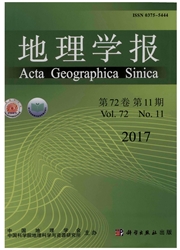

 中文摘要:
中文摘要:
城市合作是长江三角洲城市与区域发展中的新现象。并且已经成为政府和学术界关注的焦点问题。选择长江三角洲的苏锡常都市圈规划、长江三角洲城市经济协调会和江阴经济开发区靖江园区三个典型的城市合作案例.从伙伴关系的理论视角.进行城市合作的实证研究,分别探讨了科层的城市合作、自发的城市合作和混合式的城市合作三种类型伙伴关系的制度安排。基于长三角的经验,该研究在区域尺度上对伙伴关系理论的应用进行了拓展。研究的焦点在于三种模式城市合作的有效性(绩效)。通过对伙伴关系形成过程和利益相关者互动的追踪,研究认为合作是否有效取决于合作的机制、合作的过程、合作的性质和领域、伙伴的选择和伙伴关系形成中利益相关者的作用。
 英文摘要:
英文摘要:
Inter-city cooperation in the Yangtze River Delta region is a new phenomenon and has received much governmental and scholarly attention in recent years. This paper examines inter-city cooperation from partnership perspective. In this study, three typical cases of inter-city cooperation, Suzhou-Wuxi-Changzhou Urban Region Planning, the Forum for the Coordination of Urban Economy of Yangtze River Delta Region and Jiangyin Economic Development Zone in Jingjiang are selected to examine three types of partnership arrangements, namely, hierarchical partnership, spontaneous partnership and hybrid partnership. This research applies the partnership approach to regional scale based on the Yangtze River delta's experiences. The research focus of this paper is the effectiveness of three types of inter-city cooperation. Through tracing the process of partnership formation and investigating stakeholder interactions, this paper argues that the effectiveness of inter-city cooperation depends on cooperation mechanism, the process of cooperation, the nature and scope of the cooperation, and the partner selection and roles of actors in partnership formation.
 同期刊论文项目
同期刊论文项目
 同项目期刊论文
同项目期刊论文
 期刊信息
期刊信息
